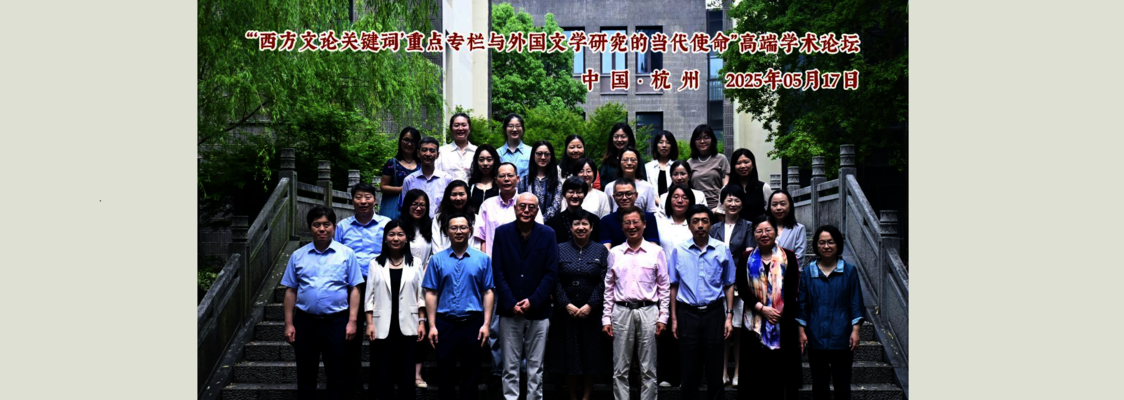- 对外讲好中国故事:挑战、机遇与方法
- Is ‘World Literature’ Dead? Politics and P
- 书写摄影,或关于摄影理论的断想——围绕罗兰·
- 翻译造成的理解错位——以“Lyric”为中心
- 《傲慢与偏见》两百年的回顾
- 人工智能时代下翻译职业发展的机遇与挑战
- 非洲历史文化再认识
- 三力主义和文学研究的基础——以《黑暗的心》为
- The Journey to “It Can’t Happen Here”: A
- 摄影的未来向度——一个具有普遍意义的镜像知识
- 钟表与宫廷:本雅明论悲悼剧情节的阴谋化
- 《特洛伊罗斯与克瑞西达》与英国早期资本主义市
- 中小学英语教学中的行动研究
- 通过训民正音序文看韩国语的发展变化
- 从语言定义看翻译意义
- 钱锺书“化境说”研究的余味年华
- 认知语料库语言学
- Controversies and Future Directions of Bilin
- African Languages in the 21st Century: Conte
- 何谓情动?
时间:2024年4月16日15:30
地点:仓前校区恕园19-205
主讲内容:
In his article “Globalization and World Literature” (Neohelicon, 38, 251-265, 2011), J. Hillis Miller wrote “world literature’s time has come again” and the need to establish a new discipline accordingly to meet both the opportunities and challenges of globalization, the latter of which he listed as the difficulties associated with defining “literature,” choosing representative works, translation, and so on. It would seem today however that greater difficulties abound.
With this in mind, this talk examines the history and perhaps fate of “world literature,” which in some respects expressed an ideological value produced in the post-national milieu associated with the so-called “end of history” and “new world order” that following the collapse of the Soviet Union and the end of the first Cold War. Given the return however of nationalism, nation-building and national rejuvenation as normative concepts, given the history of War on Terror and national struggles in Ukraine and Palestine, given the return of the nation-state and the increasing dissolution of the European Union, given what some believe is the advent of a new Cold War and the rising existential dangers associated with climate change, we consider whether “world literature” as previously imagined is now “dead” and whether it’s merely experience a difficult transition in a new era. We consider what role it might world literature might play in the construction of a “shared future for humanity,” or a siren call for the possibility of the opposite, post-mortem or not.
主讲人简介:
Josef Gregory Mahoney is Professor of Politics and International Relations at East China Normal University and Senior Research Fellow with the Institute for the Development of Socialism with Chinese Characteristics at Southeast University and the Hainan CGE Peace Development Foundation.







